GED GED Reasoning Through Language Arts GED-Reading Exam Dumps: Updated Questions & Answers (March 2026)
-- Exhibit–
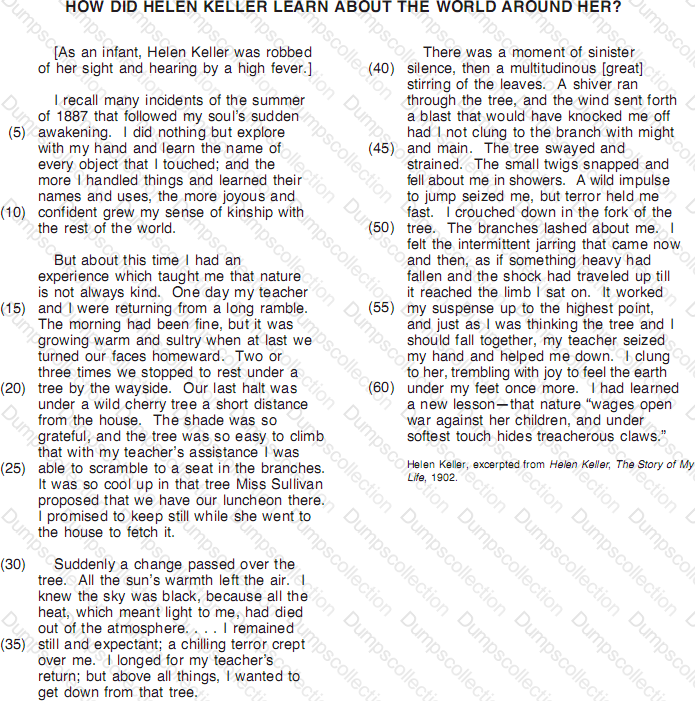
-- Exhibit --
What mood does the writer create with her description of the storm?
-- Exhibit–
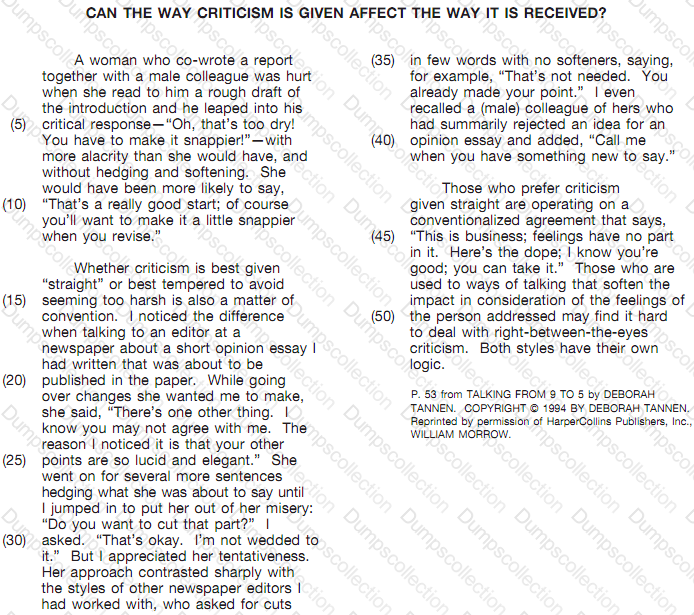
-- Exhibit --
In her book THE ARGUMENT OFCULTURE, the author claims that "the modern culture is far too critical—many prefer to shout down . . . the opposition points of view rather than listen to them."
Based on the information above and the information in the passage, which of the following best summarizes the author’s view about criticism?
-- Exhibit–
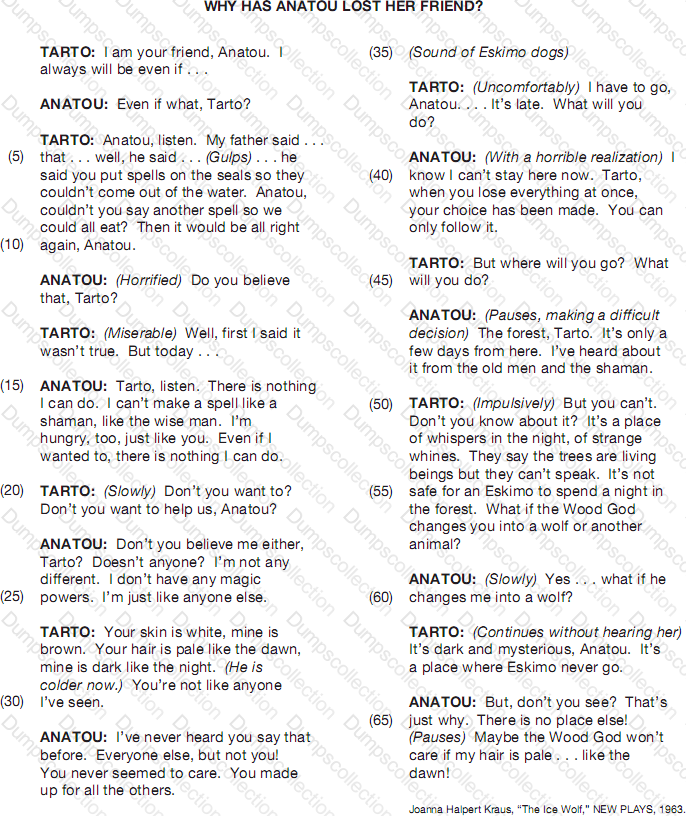
-- Exhibit --
When Anatou protests that she has no magical power, Tarto answers by saying, “Don’t you want to? Don’t you want to help us, Anatou?” (lines 20–21). What do Tarto’s words reveal?
-- Exhibit–
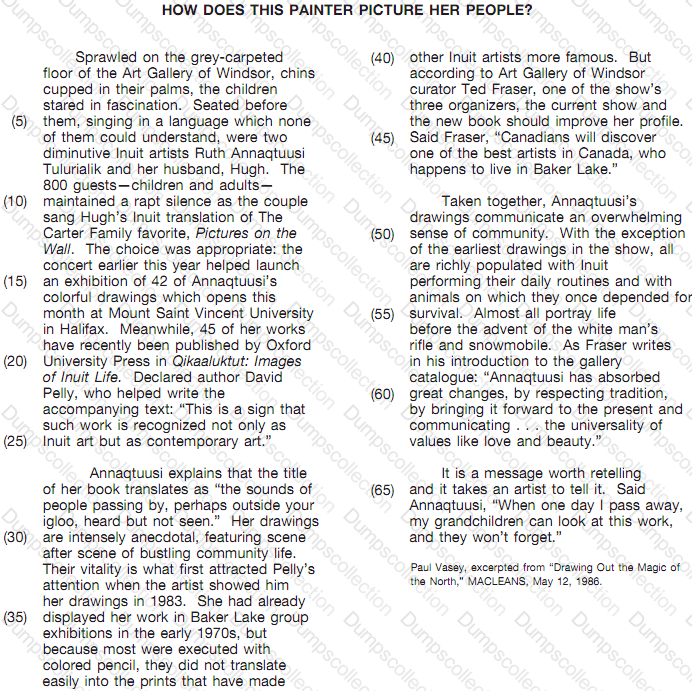
-- Exhibit --
Why are the opinions of Ted Fraser and David Pelly presented in this excerpt?
-- Exhibit–
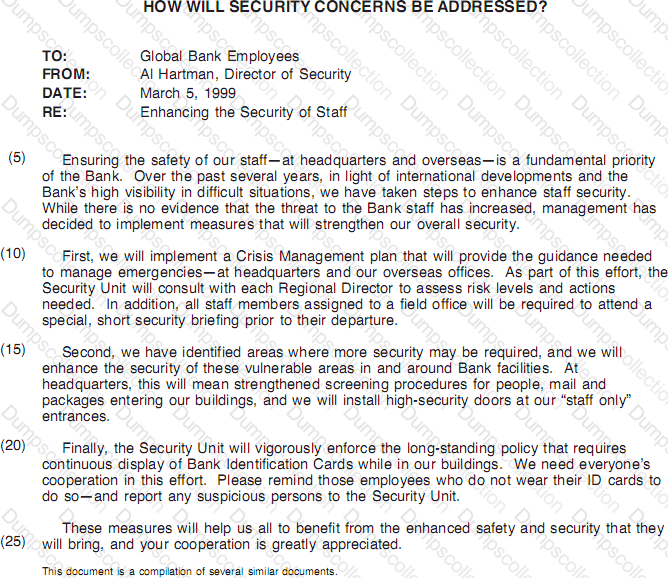
-- Exhibit --
What is Mr. Hartman’s main purpose in writing this memo?
-- Exhibit–
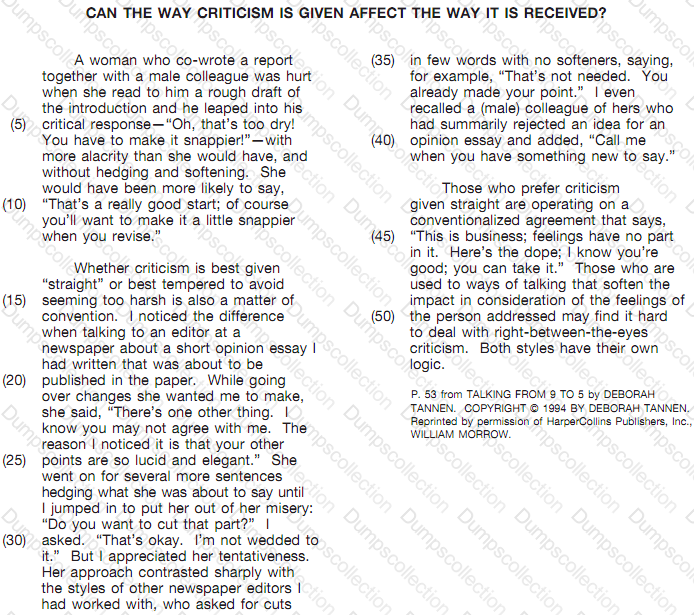
-- Exhibit --
On the basis of the passage, if the author were editing someone else’s work, what strategy of criticism would she use?
-- Exhibit–
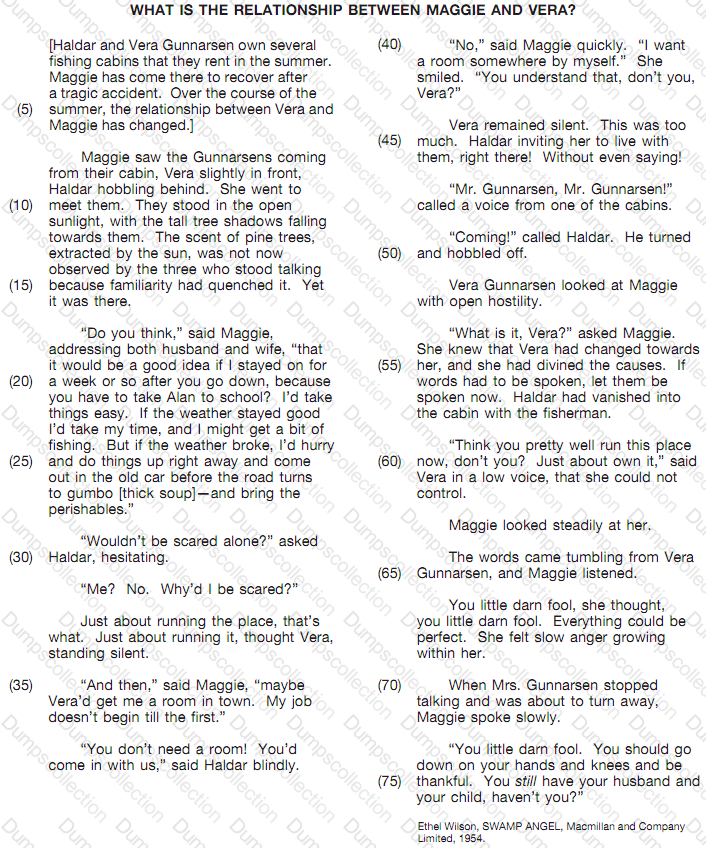
-- Exhibit --
What does Maggie think might turn the road to "gumbo" (line 27)?
-- Exhibit–
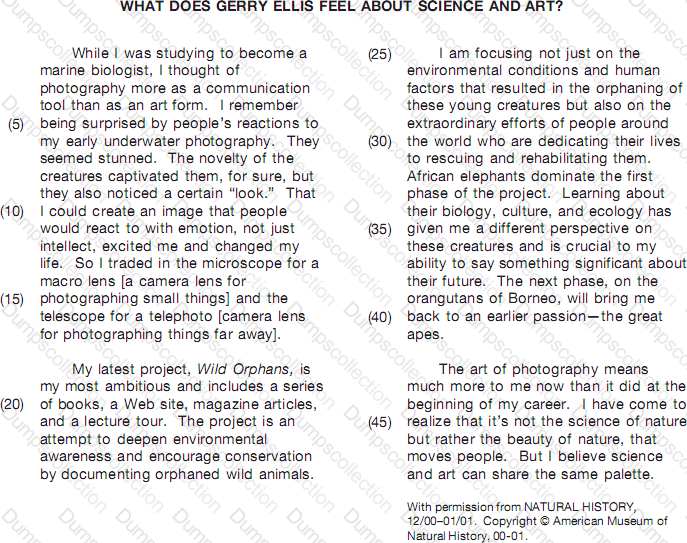
-- Exhibit --
Why did the author trade in “the microscope for a macro lens and the telescope for a telephoto” (lines 13–16)?
-- Exhibit–
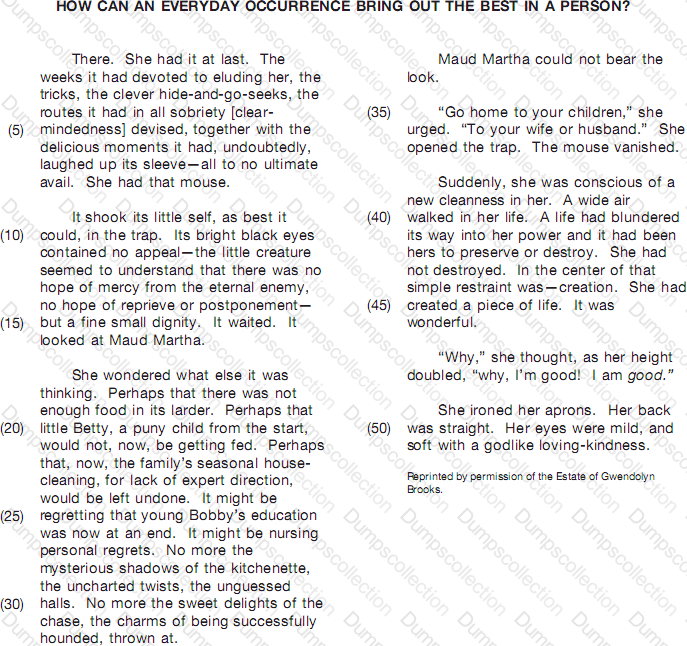
-- Exhibit --
Earlier in this story, Maud Martha’s Gramma Ernestine dies. Maud Martha thinks to herself, “I never saw anyone die before . . . but I’m seeing somebody die right now.”
How does this situation relate to the encounter Maud Martha has with the mouse?
-- Exhibit–
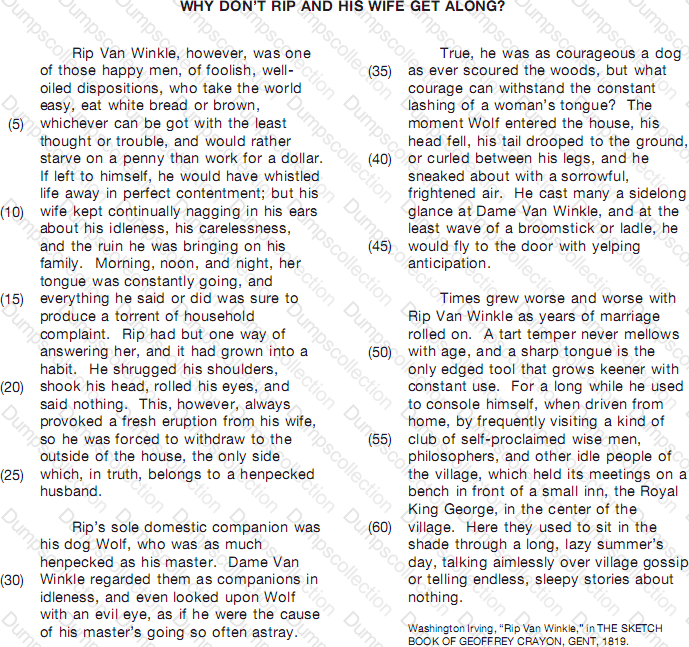
-- Exhibit --
How does the narrator show the relationship between Rip and his wife?

